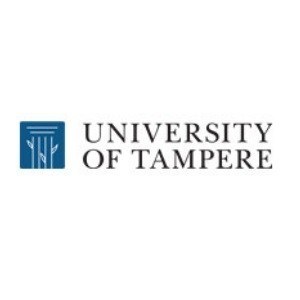Photos of university
The Master's Degree Programme in Quantitative Social Research at Tampere University offers students a comprehensive education in the methods, analysis, and application of quantitative research techniques within social sciences. This programme is designed for those who wish to develop advanced skills in statistical analysis, data collection, and interpretation to better understand social phenomena and contribute to evidence-based decision making. Throughout the programme, students gain a solid foundation in statistical modeling, survey design, and data management, alongside training in the use of state-of-the-art software tools for data analysis. The curriculum emphasizes both theoretical understanding and practical skills, preparing graduates for careers in research institutions, governmental agencies, NGOs, and private sector organizations focused on social research. Students will explore key topics such as social statistics, research methodology, data visualization, and big data analytics, enabling them to handle complex datasets and derive meaningful insights. The programme encourages an interdisciplinary approach, integrating perspectives from sociology, political science, economics, and psychology, to provide a well-rounded understanding of social issues. Collaboration with research projects and internships offers students valuable hands-on experience, fostering critical thinking and problem-solving abilities. Graduates of this programme will be equipped to design and conduct robust quantitative research, interpret results accurately, and communicate findings effectively to diverse audiences. With global relevance and local impact, the Master's in Quantitative Social Research prepares students to meet the analytical challenges of social sciences and contribute to societal development through data-driven insights. The international environment and diverse student body further enrich the learning experience, making it a dynamic setting for aspiring social researchers.
The Master's Degree Program in Quantitative Social Research at Tampere University offers an in-depth education in the collection, analysis, and interpretation of quantitative data within social sciences. The program is designed to equip students with advanced statistical skills, methodological expertise, and theoretical understanding necessary for conducting rigorous social research. Throughout the program, students gain comprehensive knowledge of various quantitative research methods, including survey research, experimental design, and statistical modeling, enabling them to address complex social issues empirically. The curriculum emphasizes both theoretical foundations and practical application, ensuring graduates are well-prepared for careers in academia, public sector research organizations, private companies, and international organizations.
Students will learn how to design robust surveys, develop sophisticated data analysis techniques, and utilize modern software tools for data management and statistical analysis, such as R, SPSS, and Stata. The program also covers important topics like data quality, ethical considerations in social research, and the interpretation and presentation of research findings. Collaboration and teamwork are integral parts of the learning process, often involving project work and collaborative data analysis projects that mirror real-world research scenarios. Furthermore, the program encourages students to critically evaluate research literature and develop their own research ideas, culminating in a master's thesis that demonstrates their ability to conduct independent, high-quality research.
Internationally oriented, the program offers opportunities for exchanges and internships, fostering a global perspective and practical experience in the field. Graduates will be able to apply their expertise in various sectors, including governmental agencies, research institutions, non-governmental organizations, and private sector firms, where quantitative analysis plays a crucial role in policy development, market research, and program evaluation. The program’s multidisciplinary approach, combining social sciences, statistics, and data science, ensures that students acquire a versatile skill set suitable for diverse career paths. With a strong emphasis on methodological rigor and practical skills, the Quantitative Social Research program at Tampere University prepares students to become skilled researchers and data analysts capable of making significant contributions to societal development and evidence-based decision making.
Programme requirements for the Master's Degree Programme in Quantitative Social Research at Tampere University include a relevant Bachelor's degree or an equivalent qualification in social sciences, statistics, or a related field. Applicants are expected to demonstrate proficiency in quantitative research methods, data analysis, and statistical software such as SPSS or R. Prior coursework or experience in research design, survey methods, and data collection techniques is advantageous. The selection process considers academic performance, motivation, and relevant work experience. Applicants must submit their academic transcripts, a motivation letter outlining their interest and suitability for the programme, and references if required. English language proficiency must be demonstrated through tests such as TOEFL or IELTS unless the applicant has completed prior studies in English medium. The programme emphasizes interdisciplinary understanding, critical thinking, and practical skills in analyzing large datasets and applying statistical models to social science problems. In addition to core courses in research methodology, students are required to participate in projects, seminars, and internships to gain hands-on experience. The programme prepares graduates for careers in academia, government agencies, research organizations, and private sector companies that require advanced quantitative analysis skills. To successfully complete the programme, students must earn the required credits by passing examinations, coursework assignments, and a final thesis that demonstrates their ability to independently conduct research. Attendance in scheduled lectures and seminars is mandatory, and active participation is expected to foster collaborative learning. Candidates should also review and adhere to the technical and ethical standards outlined by the university for conducting research. Continuous assessment throughout the programme ensures that students develop the necessary competencies to analyze complex social phenomena quantitatively. The programme promotes academic integrity and expects students to uphold high standards of honesty and responsibility in all research activities.
Financing for the Quantitative Social Research master's program at Tampere University primarily consists of scholarships, government-funded student grants, student loans, and personal funding options. Finnish higher education institutions, including Tampere University, participate in national scholarship programs aimed at supporting both domestic and international students. These scholarships are often merit-based or need-based and can cover tuition fees and living expenses. The Finnish government offers student financial aid in the form of study grants and government-backed loans to eligible students pursuing tertiary education in Finland. International students admitted to the program may have access to certain scholarships specifically designed for international students, which can significantly reduce financial burdens. Additionally, students are encouraged to explore external funding opportunities such as private scholarships, grants, and sponsorships from organizations in their home countries or international institutions. The cost of living in Tampere is relatively moderate compared to other Nordic cities, and students often supplement their income through part-time employment permitted under Finnish immigration regulations. The university's financial aid office provides comprehensive guidance to prospective and current students on available funding options, application procedures, and eligibility criteria. For students from European Union countries, tuition fees are generally waived, and they are eligible for Finnish student benefits, including financial aid. Non-EU/EEA students are subject to tuition fees, but many are able to secure scholarships or financial support to assist with costs. Overall, the university promotes accessible higher education through a variety of financial support mechanisms, helping students to focus on their academic and research pursuits in the field of social sciences.
Quantitative Social Research at Tampere University is a multidisciplinary Master's degree programme designed to equip students with comprehensive skills in the analysis of social phenomena through quantitative methods. The programme emphasizes the development of advanced statistical and computational skills necessary for collecting, analyzing, and interpreting data related to human behavior, social processes, and societal trends. Students gain a solid foundation in research methods, data management, and statistical modeling, preparing them for diverse careers in academia, public sector, private industry, and non-governmental organizations. The curriculum typically includes courses in research design, survey methods, multivariate analysis, data visualization, and programming languages relevant to social research such as R or Python. Moreover, the programme encourages practical application through project work and internships, fostering the ability to undertake real-world research projects. Graduates of the programme are well-equipped to contribute to evidence-based policymaking, social planning, market research, and consultancy projects. Tampere University’s strong ties to national and international research communities provide students opportunities for networking, collaboration, and participation in cutting-edge research initiatives. The programme also emphasizes ethical considerations and the importance of transparency and reproducibility in social research. Graduates often pursue doctoral studies or enter the workforce in research institutions, government agencies, and private companies seeking expertise in quantitative analysis of social data. The language of instruction is predominantly English, making it accessible to international students. Overall, Quantitative Social Research at Tampere University is an academically rigorous programme aimed at developing highly skilled statisticians and social scientists capable of addressing complex social issues through quantitative methods, analytical skills, and effective communication of findings.








